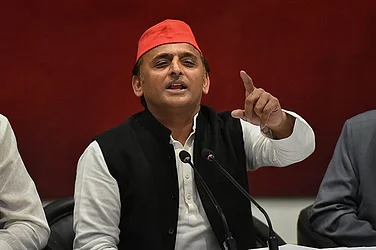After controversy over remarks regarding the 'Caste of Gods' made by its new Cive Chancellor, Delhi's prestigious Jawaharlal Nehru University (JNU) is in news again after the release of the new prospectus for PhD admissions. The new rules has caused a row in the capital with both students as well as teachers objecting to the reduced number of seats and the "lack of clarity" regarding the admission process.
What does JNU's PhD prospectus say?
The central university recently released the PhD prospectus for the academic session 2022-23, according to which admissions will be based on merit. The candidates seeking admission into PhD programmes have to appear in the CBT (Computer Based Test). The prospectus noted that "merely qualifying in the CBT does not entitle the candidates to be shortlisted for the viva-voce examination". It lays out a number of criteria for shortlisting of the viva-voce candidates.
The JRF-qualified candidates will be exempted from the CBT. They are required to apply separately under the JRF category. Such candidates shall be shortlisted and called directly for viva-voce.
Why students are objecting to the JNU PhD prospectus?
Students have claimed that the total number of PhD seats across centres in the JNU will decline by 32 per cent from the academic year 2022-23 and many centres plan to fill all the seats with students selected for Junior Research Fellow (JRF).
Moreover, teachers and students at the university have raised concerns over the lack of clarity as regards the starting of the admission process. There was no immediate response from the administration.
While a section of students is saying that the university should re-take the responsibility of conducting the entrance examination from the National Testing Agency (NTA), another section is demanding that the NTA should continue conducting the entrance exams for PhD admission.
The Akhil Bharatiya Vidyarthi Parishad (ABVP) submitted a memorandum to Vice-Chancellor Santishree Dhulipudi Pandit on Saturday and said the PhD admission prospectus, which was released last week "due to our unrelenting struggle", has many discrepancies.
"A 32-per cent decrease in PhD seats, zero PhD seats in many centres, 100 per cent seats via the JRF category in many centres like the Centre for the Study of Law and Governance, increased percentage of JRF seats for PhD admission," read the memorandum.
Teachers demand clarity
The JNU Teachers' Association (JNUTA) has also alleged that admissions to the university's prestigious PhD programmes are being administered with appalling shabbiness."The fate of a JNU-specific JNUEE, which the NTA has been conducting for the past three years, is as yet officially unknown, but it is a fact that despite the e-prospectus having been released on August 24, the NTA is yet to generate a weblink to initiate the process of inviting applications for the PhD JNUEE," the JNUTA said.
The teachers said the e-prospectus was released without the approval of the Academic Council, which is the statutory body that has the sole responsibility for all matters pertaining to admissions to the university.
The JNUTA demanded that the university authorities immediately apprise the schools and centres, the boards of studies as well as the Academic Council of the status of PhD admissions for the academic year 2022-23.
Calls for academic autonomy of universities
Meanwhile, the JNU Students' Union (JNUSU) also staged a demonstration on Tuesday, demanding that the academic autonomy of universities be restored and the responsibility of conducting examinations be given back to the JNU.
The ABVP has demanded that the JNU administration should rationalise the number of seats for PhD admission through the JRF category and bring it down at par with the percentage of the NET (National Eligibility Test) and JRF-qualified candidates.
(With inputs from PTI)


























